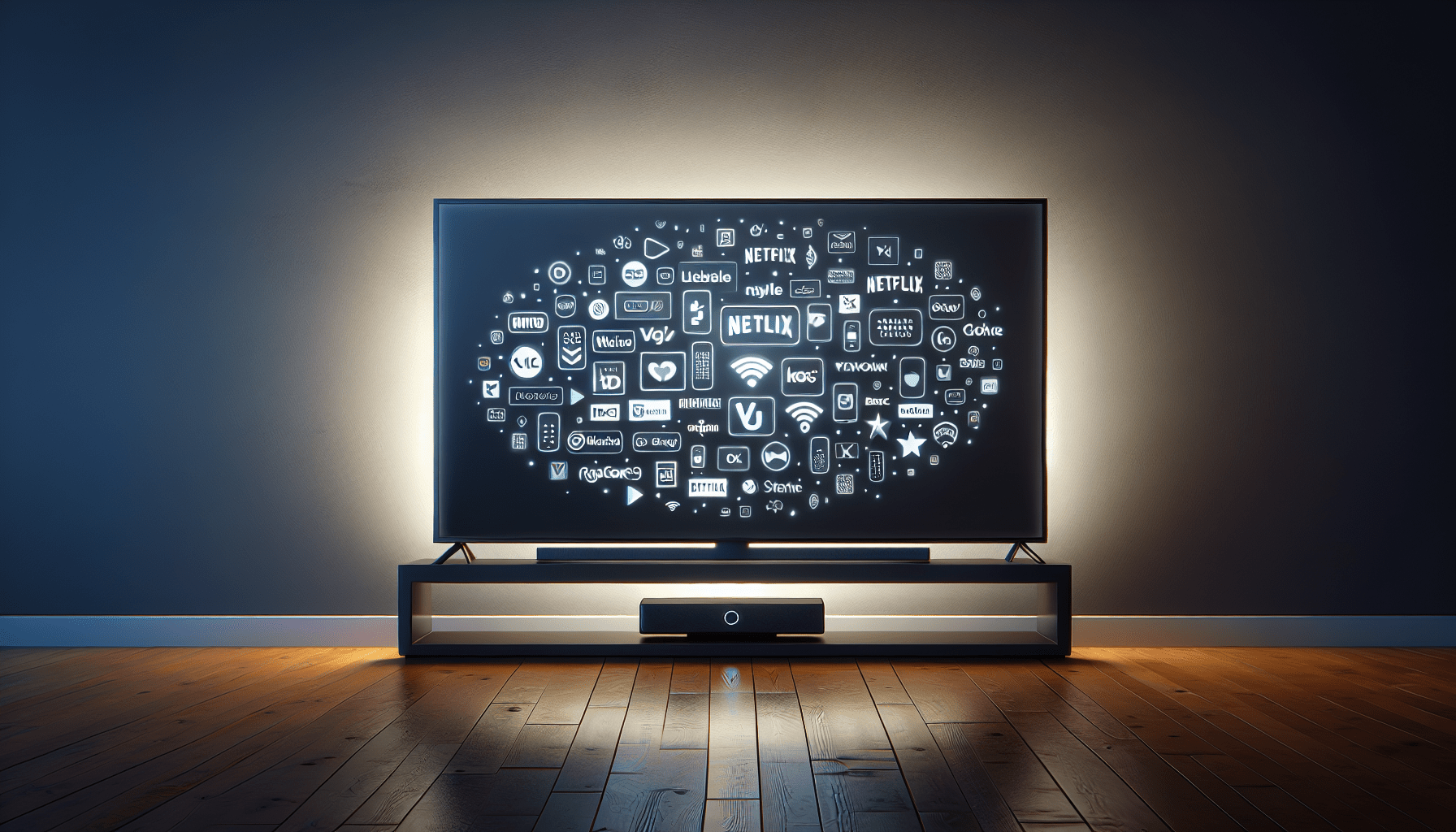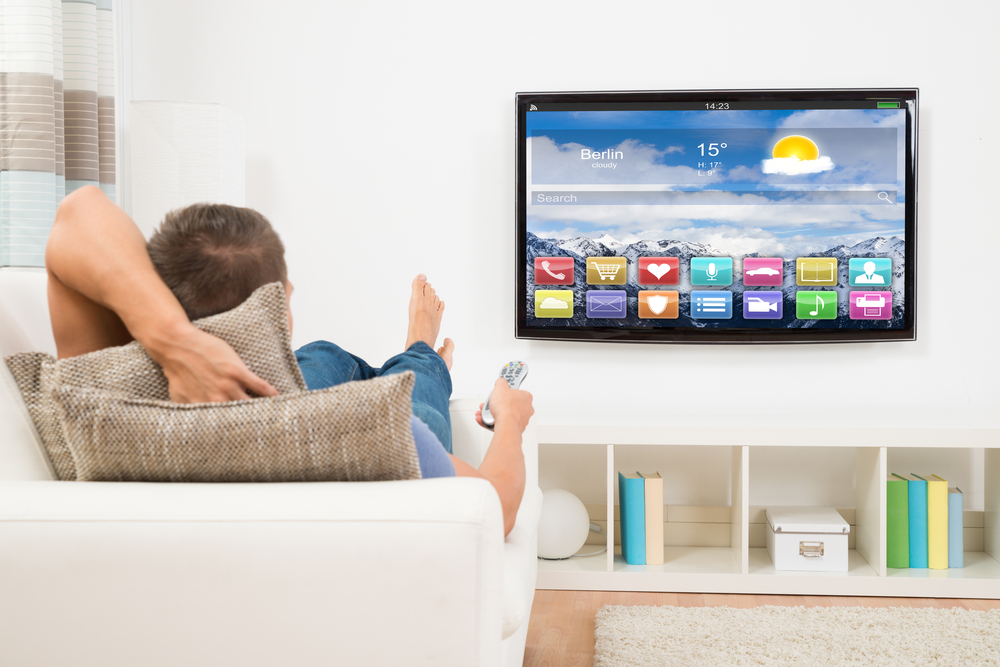Imagine having the power to both enjoy your favorite movies and music while also reducing your energy consumption. It may sound too good to be true, but smart home entertainment systems are making this a reality. With their innovative technologies and intelligent features, these systems have the potential to revolutionize the way we consume energy in our homes. In this article, we will explore the various ways in which smart home entertainment systems can contribute to energy saving, making your entertainment experience not only enjoyable but also eco-friendly. So get ready to dive into the world of smart home entertainment systems and discover how they can help you make a positive impact on the planet.
Smart Home Entertainment Systems
Definition
Smart home entertainment systems refer to a collection of interconnected devices and technologies that enhance the entertainment experience within a home while also providing energy-saving benefits. These systems typically include smart TVs, streaming devices, smart speakers, and other connected home audio and video equipment.
Features
Smart home entertainment systems offer a range of features that make it easier and more convenient to enjoy entertainment while also reducing energy consumption. These features may include automated power management, energy monitoring and reporting, integration with other energy-saving devices, and even user behavior modification.
Popular Brands
There are several well-known brands in the market that offer smart home entertainment systems, including Samsung, LG, Sony, and Bose. These brands have established themselves as leaders in the industry, providing high-quality products that are known for their performance, reliability, and energy efficiency.
Energy Saving Benefits
Efficient Energy Consumption
One of the key benefits of smart home entertainment systems is their efficient energy consumption. These systems are designed to optimize power usage, ensuring that only the required amount of electricity is consumed. This not only helps to reduce energy waste but also lowers electricity bills for homeowners.
Automated Power Management
Smart home entertainment systems excel in automated power management. They can be programmed to automatically turn off or enter “sleep” mode when not in use, minimizing energy consumption. This feature is particularly useful for devices like televisions and gaming consoles, which are often left on for extended periods without any activity.
Energy Monitoring and Reporting
Another significant advantage of smart home entertainment systems is their ability to monitor energy usage and provide real-time reporting. This enables homeowners to track their energy consumption and identify areas where they can make adjustments to reduce energy waste. By having access to this data, users can make informed decisions and take steps to minimize their environmental impact.
Efficient Energy Consumption
Low Power Requirements
Smart home entertainment systems are designed with energy efficiency in mind. From smart TVs to streaming devices, these devices often have low power requirements, allowing for optimal energy utilization. By using devices with lower power requirements, homeowners can significantly reduce their electricity usage without sacrificing their entertainment experience.
Smart Power Management
In addition to having low power requirements, smart home entertainment systems also incorporate intelligent power management features. These systems automatically adjust power settings based on user preferences and usage patterns. For example, a smart TV may dim its backlight when the room becomes brighter, reducing energy consumption without compromising picture quality.
Automated Power Management
Timers and Schedules
Smart home entertainment systems offer timers and schedules that allow users to automate the power management of their devices. For example, you can set your smart TV to turn off automatically at a specific time every day or program your gaming console to enter standby mode after a period of inactivity. This automation ensures that energy is not wasted when devices are not in use.
Presence Detection
Some smart home entertainment systems use presence detection technology to determine whether someone is actively using the equipment. By detecting motion or monitoring user activity, these systems can automatically power on or off devices based on occupancy. This eliminates the need for manual intervention and ensures energy efficiency even when users forget to turn off their devices.
Energy Monitoring and Reporting
Real-time Usage Data
Smart home entertainment systems often provide real-time usage data that allows homeowners to monitor their energy consumption on a granular level. This data can be accessed through smartphone apps or dedicated control panels, giving users insight into how much energy their entertainment devices are using at any given time. By having this information readily available, users can make more informed decisions about their energy usage.
Identifying Energy Drains
With the energy monitoring capabilities of smart home entertainment systems, homeowners can identify devices or activities that are consuming excessive energy. For example, if a gaming console is found to be drawing a significant amount of power even when not in use, users can take steps to reduce its power consumption or optimize its settings. This helps to eliminate energy drains and maximize energy efficiency throughout the home.
Integration with Energy Saving Features
Smart Thermostats
Smart home entertainment systems can integrate seamlessly with other energy-saving devices, such as smart thermostats. By connecting these systems, homeowners can achieve greater energy efficiency and optimize their home’s overall performance. For instance, when the smart entertainment system detects that the TV is turned off, it can communicate with the smart thermostat to adjust the temperature and save energy.
LED Lighting Control
Another energy-saving feature that can be integrated with smart home entertainment systems is LED lighting control. LED lights are known for their energy efficiency and longevity, and by incorporating them into the overall system, homeowners can create an immersive entertainment experience while minimizing energy consumption. The smart entertainment system can synchronize the lighting with the content being played, enhancing the ambiance without wasting energy.
User Behavior Modification
Increased Awareness
Smart home entertainment systems can help increase household members’ awareness of their energy consumption habits. With real-time energy monitoring and reporting features, users can visualize the impact of their entertainment devices on their overall energy usage. This increased awareness can motivate users to adopt energy-saving practices, such as turning off devices when not in use or reducing screen time, ultimately leading to improved energy efficiency.
Remote Access and Control
Through remote access and control capabilities, smart home entertainment systems empower homeowners to manage their devices from anywhere. This feature allows users to turn off or adjust settings on their entertainment devices remotely, ensuring that energy is not wasted when they are away from home. For example, if you realize you left your TV on after leaving the house, you can simply access the smart entertainment system’s app and turn it off, saving energy and reducing your carbon footprint.
Environmental Impact
Reduced Carbon Footprint
By incorporating energy-saving features, smart home entertainment systems can contribute to a reduced carbon footprint. The efficient energy consumption, automated power management, and integration with energy-saving devices and lighting help to minimize energy waste. This reduction in energy consumption translates into lower carbon dioxide emissions, benefiting the environment and mitigating the effects of climate change.
Energy Efficient Appliances
Smart home entertainment systems often include energy-efficient appliances that help further reduce environmental impact. For example, smart TVs with Energy Star ratings meet strict energy efficiency criteria and consume less power than traditional models. By choosing energy-efficient appliances as part of the entertainment system, homeowners can significantly contribute to a greener, more sustainable future.
Cost Savings
Lower Energy Bills
One of the most tangible benefits of smart home entertainment systems is the potential for lower energy bills. By efficiently managing power consumption, monitoring energy usage, and integrating with other energy-saving devices, these systems can help homeowners significantly reduce their electricity costs. Over time, the cumulative savings on energy bills can offset the initial investment in the smart entertainment system.
Long-term Investment
Investing in a smart home entertainment system is a long-term investment that offers both immediate and long-term benefits. While the initial setup and purchase costs may be higher compared to traditional entertainment setups, the energy-saving features and cost savings over time make it a worthwhile investment. Additionally, the integration of the system with other energy-saving devices can result in even greater cost savings and a more sustainable lifestyle.
Challenges and Considerations
Initial Setup and Investment
One of the main challenges of adopting a smart home entertainment system is the initial setup and investment required. Setting up the interconnected devices, configuring the system, and ensuring compatibility with existing equipment may require some technical expertise or professional assistance. Additionally, the initial cost of purchasing the devices and equipment can be higher compared to traditional entertainment setups. However, it is important to consider the long-term benefits and potential cost savings when evaluating the investment required.
Compatibility and Integration
Compatibility and integration with existing devices and systems can be another consideration when implementing a smart home entertainment system. Ensuring that all devices can communicate and work seamlessly together may require some research and troubleshooting. It is crucial to choose devices and brands that are known for their compatibility with a wide range of platforms and protocols to ensure a smooth integration process.
Data Privacy and Security
As with any interconnected ecosystem, data privacy and security are important concerns for smart home entertainment systems. These systems gather data on energy usage and user behavior, which must be protected from unauthorized access. Ensuring that the system is built with robust security measures, using encrypted communication channels, and regularly updating firmware and software are essential for safeguarding personal data and maintaining privacy.
By considering these challenges and taking appropriate measures, homeowners can enjoy the benefits of a smart home entertainment system while ensuring the security and privacy of their information.
In conclusion, smart home entertainment systems offer a comprehensive solution for enhancing entertainment experiences while also providing significant energy-saving benefits. Through efficient energy consumption, automated power management, energy monitoring, and integration with other energy-saving features, these systems contribute to reduced carbon footprints and lower energy bills. Additionally, they encourage user behavior modification and increase awareness of energy consumption habits. Despite the initial setup and investment challenges, the long-term cost savings and environmental impact make smart home entertainment systems a compelling choice for eco-conscious homeowners looking to create a greener and more sustainable home.






